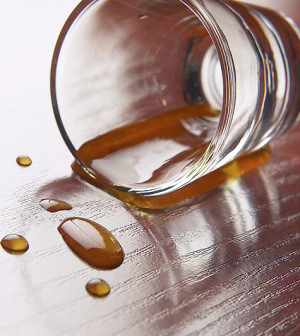- The Best Time of Day to Drink Bone Broth to Maximize Health Benefits
- 8 Ways to Increase Dopamine Naturally
- 7 Best Breads for Maintaining Stable Blood Sugar
- Gelatin vs. Collagen: Which is Best for Skin, Nails, and Joints?
- The Long-Term Effects of Daily Turmeric Supplements on Liver Health
- Could Your Grocery Store Meat Be Causing Recurring UTIs?
- Are You Making This Expensive Thermostat Error This Winter?
- Recognizing the Signs of Hypothyroidism
- 10 Strategies to Overcome Insomnia
- Could Artificial Sweeteners Be Aging the Brain Faster?
Gene Mutation May Be Tied to Drunken Recklessness

Scientists say that they have identified a gene mutation that is linked to an increased risk of impulsive and reckless behavior when drunk.
The research also indicates that “persons with this mutation are more impulsive by nature even when sober, and they are more likely to struggle with self-control or mood disorders,” study leader and psychiatrist Roope Tikkanen, of the University of Helsinki in Finland, said in a university news release.
The mutation occurs in a gene of the serotonin 2B receptor, whose function is little-known but thought to connect with impulsivity, the study authors said.
“The impact of one gene on complex phenomena is typically minor. But it is possible to identify the impact of such a genetic mutation in the Finnish population, as our historical isolation has led to a relatively homogenous gene pool,” Tikkanen added.
More than 2 percent of people in Finland have the mutation, according to the report published online Nov. 17 in the journal Translational Psychiatry.
The research was based on data on impulsive sufferers of alcoholism and their relatives, compiled by the university.
The association seen in the study does not prove a cause-and-effect relationship, and more studies are needed. But this line of research could lead to new treatments for impulse control problems, the investigators said.
More information
West Virginia University has more about impulsive behavior.
Source: HealthDay
Copyright © 2026 HealthDay. All rights reserved.










